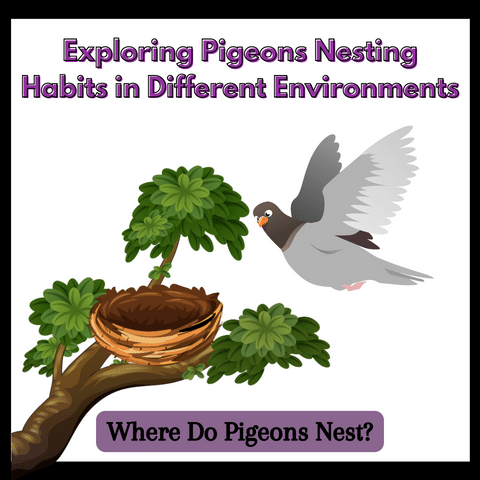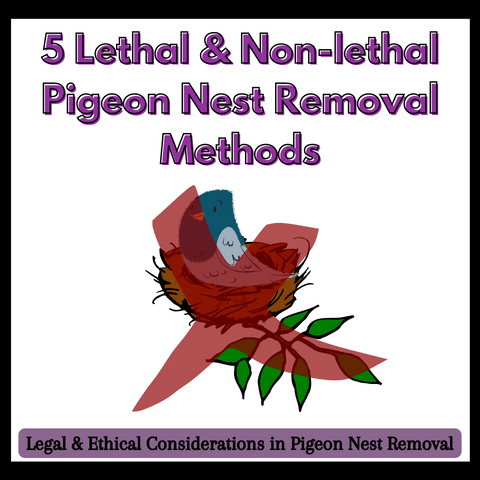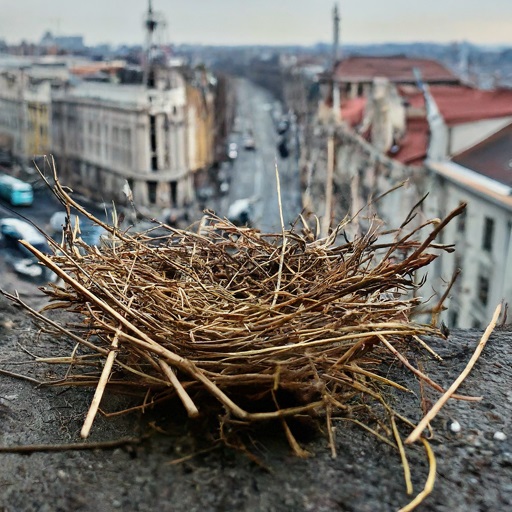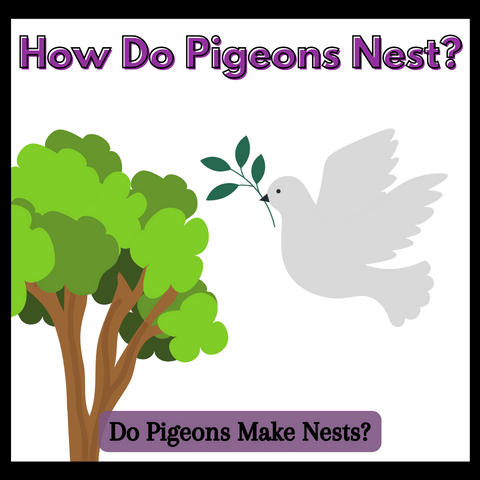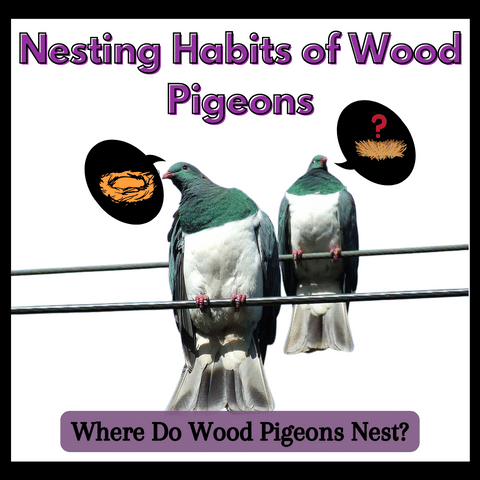When Do Pigeons Leave The Nest? [Time and Conditions]
If you are wondering ‘when pigeons leave the nest,’ you are not alone. People have frequently asked, ‘What time of year do baby pigeons leave the nest?’ and ‘What does a pigeon look like when it’s ready to leave the nest.’ In this article, I will answer ‘When do pigeons leave the nest?’ and delve into factors that may influence their departure, which is crucial for appreciating their life cycle.
We will also help you discover all the answers to frequently asked questions and know if pigeons leave their nest at night. But before I tell you when pigeons are ready to leave the nest or whether pigeons leave their nest at night, it’s important to explore the timing of pigeons fledging. Therefore, let’s start by first knowing when pigeons leave the nest.
What Time of The Year Do Pigeons Leave The Nest?
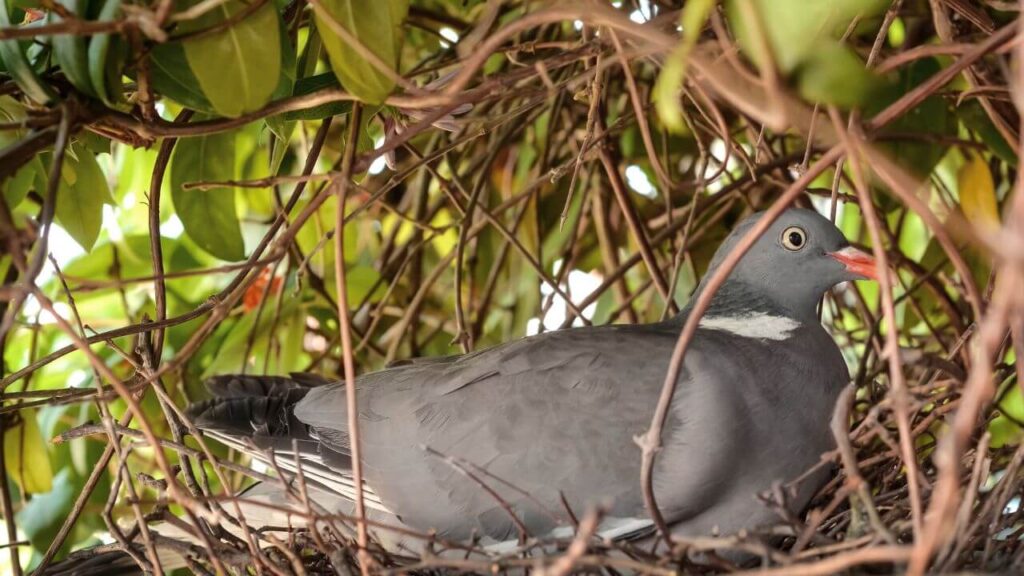
Pigeons typically leave the nest when they are about 25-32 days of age. But, it may also depend upon other factors like seasonal variations & environmental conditions. Baby pigeons may leave the nest earlier, usually around 25 days during warmer months. But as winter approaches, the fledging age may extend to around 32 days or even more depending upon the availability of food and the need for young ones to build sufficient strength & size before venturing out on their own.
Now you know that pigeons tend to leave the nest within a specific time frame, which may vary depending on various factors. Plus, the Avian Behavior Research Institute says that the average fledging age of pigeons ranges from 25 to 32 days. That’s why I have also told you this time frame, but the exact timing may get increased by seasonal variations and environmental conditions.
If you live in a reason with warmer months like spring & summer, baby pigeons will start to leave their nest when they are only 25 days of age. On the other hand, cold days also affect food availability. In the winter months, therefore, you will notice the young pigeons’ fledgling extending up to 32 days. This kind of delay is often attributed to the reduced availability of food and the need for the young pigeon to build sufficient strength & size required to venture out & survive on their own. After knowing this, let’s understand ‘what time of year do pigeons leave the nest at most.’
Like many other bird species, Pigeons follow a relatively consistent pattern when it comes to leaving the nest.
Here’s when and under what conditions pigeons typically leave the nest:
1. Age of Nestlings:
- Pigeon nestlings, also known as squabs, typically leave the nest when they are around 4 to 6 weeks old. However, the exact timing can vary based on several factors, including environmental conditions and food availability.
2. Feathers and Flight Capabilities:
- Pigeons are not born with the ability to fly. Initially, they are covered in down feathers and are entirely dependent on their parents for warmth and food. As they grow, they develop flight feathers and muscle strength necessary for flight.
3. Gradual Exploration:
- Pigeon nestlings don’t suddenly leave the nest in one go. Instead, they begin by “branching,” which means they start to explore the area immediately around the nest, often perching on nearby branches. This stage can last for a few days to a week.
4. First Flights:
- After the branching stage, squabs take their first flights. These initial flights are usually short and unsteady, as they are still building their flight skills. They may fly short distances and return to the nest.
5. Gradual Independence:
- Over the course of the next few weeks, young pigeons become more independent and capable flyers. They gradually spend more time away from the nest, foraging for food, and roosting in different locations.
6. Complete Independence:
- At around 4 to 6 weeks of age, most pigeons become fully independent and no longer rely on their parents for food or shelter. They will join flocks of other pigeons and continue to refine their flying and foraging skills.
Conditions That Influence Nest Departure:
- Food Availability: Adequate food sources in the vicinity can influence when pigeons leave the nest. If food is readily available, squabs may fledge earlier.
- Predator Threats: The presence of predators, such as cats or birds of prey, can make parents more cautious about allowing their young to leave the nest.
- Weather Conditions: Inclement weather, including heavy rain or strong winds, can delay the fledging of young pigeons, as it may be more challenging for them to fly and forage in harsh conditions.
- Nest Disturbance: Excessive nest disturbance by humans or other animals can disrupt the nesting process, potentially causing pigeons to abandon their nests or delay fledging.
It’s essential to remember that interfering with pigeon nests should be avoided, as these birds are generally well-equipped to raise their young. Watching from a distance and allowing nature to take its course is usually the best approach when it comes to pigeons and other wildlife.
What Time of Year Do Baby Pigeons Leave the Nest?
The time of year when baby pigeons leave the nest correlates with the seasons & environmental conditions. During the spring & summer seasons, baby pigeons will start to leave the nest. However, note that this timing will also align with the availability of food sources, longer daylight hours, and favorable weather conditions. You should also note that there can be variations & exceptions to these kinds of general patterns.
Some studies conducted by the Ethnologists Society of North America have observed cases where pigeons have fled during fall and winter. However, this kind of exception often occurs in regions with milder climates where food availability remains relatively stable throughout the year. Before you wonder, ‘Do pigeon nests all year around,’ you should consider reading our article ‘When Do Pigeons Nest‘ to get all the information on nesting duration & seasons.
What Does a Pigeon Look Like When It’s Ready to Leave the Nest?
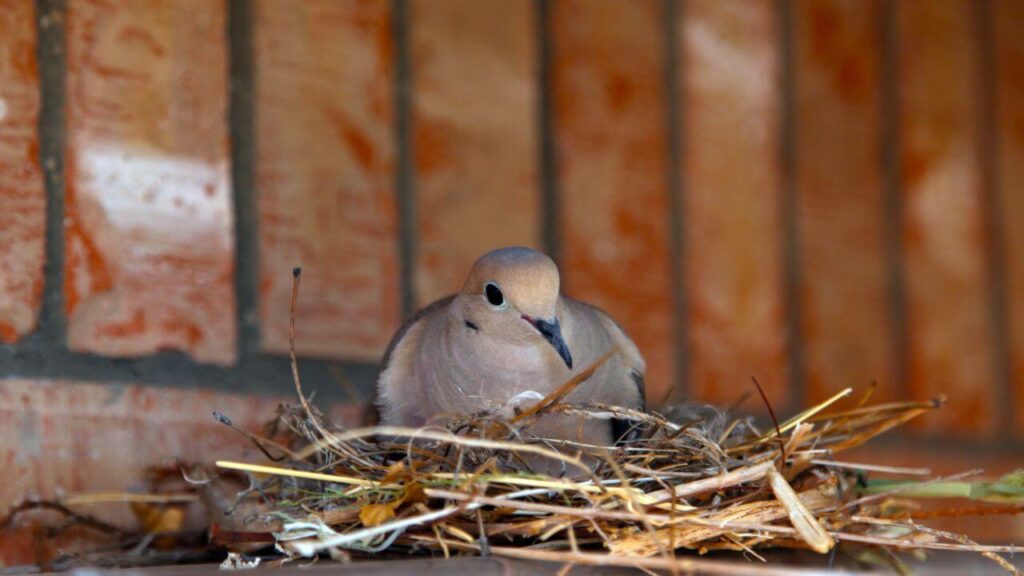
When a pigeon is ready to leave the nest, they often exhibit distinct physical and behavioral cues that indicate its readiness. I have learned that pigeons about to fledge exhibit certain characteristics, changing from their feathers to their beaks & legs. Physically, the feather of the young pigeon will become fully developed with vibrant colors and factors, indicating its readiness to leave the nest.
Its body size will also increase, reaching adult size. This is when the pigeon will change its beak & legs from a softer appearance to a harder & more mature texture. In terms of behavior, you will find a baby pigeon being more active & starting to flap its wings vigorously when it’s ready to leave the nest. Also, you will notice them spending more time on the edges of the nest or nearby perches practicing short flights. This behavior indicates that the pigeon is extending its flight muscle and coordination, preparing for an independent flight, and leaving the nest as soon as possible.
Do Pigeons Leave Their Nest at Night?
Pigeons are primarily known to be diurnal birds active during the day. Therefore, they will prefer to leave the nest & forage for food during daylight hours, not at night. It’s not common to notice pigeons leaving their nest at night, but some may exhibit nocturnal activity depending upon individual personality & preference.
Many studies have found that pigeons may engage in short nocturnal flights, especially during certain phases of their reproductive cycles. These flights are often associated with courtship behavior or searching for suitable nesting sites. However, it is important to note that this kind of nocturnal activity is uncommon compared to neuronal behavior in pigeons.
Conclusion
I hope you understand the timing and behavior of pigeons when they leave to nest. If you have any other concerns regarding the question ‘When do pigeons leave the nest,’ comment below. You know that baby pigeons typically leave the nest within a specific time frame influenced by seasonal variations as well as environmental factors.
Also, it is worth noting that a young pigeon that is ready to leave its nest and pledge independently will exhibit some physical & behavioral changes. If you notice the pigeon becoming more active during the day while trying to take a flight, it’s a clear sign that they’re preparing to leave the nest and survive on their own.
Also, you will find the pigeon being more active during the day when they will be foraging for their food as well as searching for suitable nesting sites. However, there have also been instances of nocturnal activity, particularly during certain reproductive phases, where pigeons leave the nest at night in search of food or a new nesting site.
I will advise you to observe them in their natural habitats to gain more valuable insights, further enhancing our understanding of their life cycle. I have given my best to give you in-depth knowledge on when pigeons leave the nest. If you find this article helpful, then consider sharing it. Your share is going.
Many people learn about ‘when do pigeons leave the nest’ as well as what behavior or physical changes they can expect to witness before the young ones are about to pledge. Check my other helpful guide on pigeon nesting behavior to gain more valuable insights and enhance your understanding of the pigeons nesting behavior. See you in the next post, till then, take care & goodbye.

